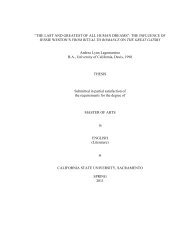COMMUNITY ACTIVISM IN OAK PARK: COMPETING AGENDAS ...
COMMUNITY ACTIVISM IN OAK PARK: COMPETING AGENDAS ...
COMMUNITY ACTIVISM IN OAK PARK: COMPETING AGENDAS ...
You also want an ePaper? Increase the reach of your titles
YUMPU automatically turns print PDFs into web optimized ePapers that Google loves.
known about the residents who are likely to participate in neighborhood organizations<br />
(1982:180).<br />
Prior Research<br />
Anthropologists traditionally have conducted fieldwork in small-scale societies<br />
and peasant communities in order to observe and document the lifeways of small groups<br />
of people and have concerned themselves with the fundamental issues of the maintenance<br />
of life and society (Ulin 1991:8-9). These analyses of small communities have generally<br />
focused on the social or political structure of a group within agricultural environments<br />
and have emphasized interaction between society and nature and the ways in which social<br />
groups have organized themselves in relation to their environment (Jones et al.<br />
1992:100). Jones explains that although these analyses are “obscured by the complexity<br />
of modern city life, an understanding of these processes is central to social analyses”<br />
(Jones et al. 1992:100). While research on small communities attempts to explain a<br />
group’s social and cultural construction as bounded by kinship, customs, and ritual<br />
practices, “research in urban society will usually focus on social constructs such as<br />
community, class, race, and gender” (Tonkiss 2005:1).<br />
Urban ethnography has undergone many changes since it evolved out of the<br />
Chicago School of Sociology in the 1940s and 50s. The early Chicago School taught that<br />
“one cannot understand social life without understanding the arrangements of particular<br />
social actors in particular social times and places—Social facts are located” (Abbott<br />
1997:1152). Traditional urban sociology was concerned with such activities as how<br />
social groups formed communities, created subcultures, and avoided anomie, which all<br />
5



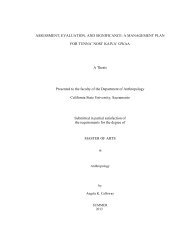
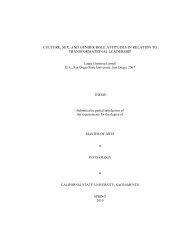
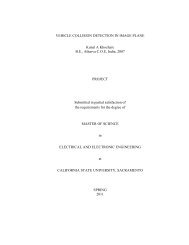
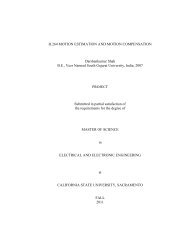
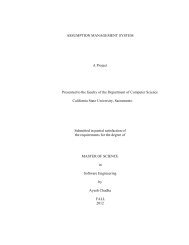
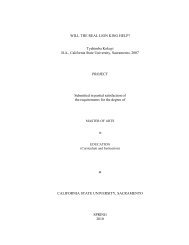
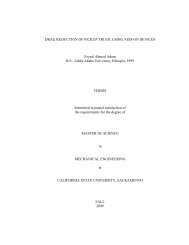
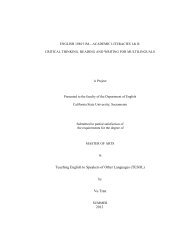
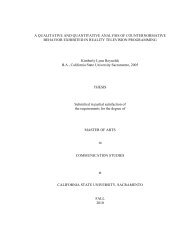
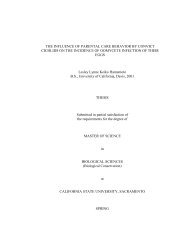
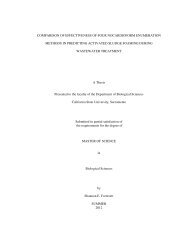
![Completed Thesis to Grad Studies[Final3].pdf](https://img.yumpu.com/17538645/1/190x245/completed-thesis-to-grad-studiesfinal3pdf.jpg?quality=85)
